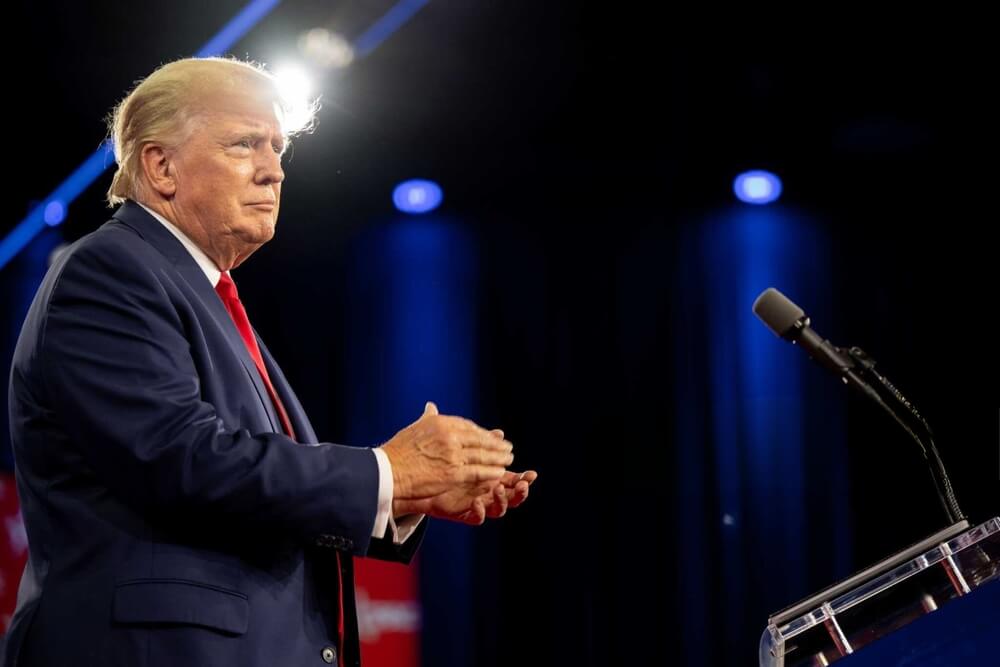The Kremlin has taken two heavy blows from Washington in the past week, both of which strike at the heart of Vladimir Putin's rule. Their impact on Moscow is all the stronger as they come at a time when efforts are being made to reach a peace agreement for Ukraine.
The resource agreement recently signed between Ukraine and the United States is a major blow to Putin.
Russia did not just attack Ukraine to seize its resources. The real goal was to control Ukraine's leadership, steer national development, and, above all, dominate Ukrainian history itself.
Russia has long tried to suppress inconvenient historical episodes — many of which remain classified even today.
The resource agreement between Ukraine and the United States will now make it much more difficult for Russia to occupy territories covered by this agreement.
While this may not completely deter Russia from continuing its invasion, it certainly undermines the narrative of "liberation" used to justify the aggression — a narrative that primarily serves domestic propaganda.
Delegitimisation of Moscow’s 9 May
An even more serious blow to the Russian leadership was President Trump's proclamation to commemorate 8 May as the true day to celebrate the victory over Nazi Germany — and to recognise the United States as the dominant force in achieving that victory.
For many years, the Kremlin has used 9 May as a propaganda tool and recruitment event.
President Trump has at least significantly delegitimised the day, if not cancelled it altogether, by declaring 8 May the true Victory Day — a victory made possible by the United States.
Most Russians only know the Second World War through the distorted lens of Soviet propaganda
Most Russians only know the Second World War through the distorted lens of Soviet propaganda. They do not know that the USSR was an ally of Nazi Germany at the beginning of the war when Nazis attacked European cities.
Few Russians know about the Molotov-Ribbentrop Pact. Even fewer understand that 9 May was deliberately chosen by Stalin to distinguish the Soviet Union’s “victory” from the broader Allied victory on 8 May — again, for propaganda purposes.
Stalin recognised that distancing the USSR from the global narrative of the Second World War helped conceal its original alliance with Nazi Germany.
The Soviets therefore invented the concept of the “Great Patriotic War” — a war that was in reality not a separate conflict but part of the Second World War, in which the USSR merely switched sides.
Rewriting history
Soviet and Russian propaganda has long emphasised that the war took place on Soviet territory for four years and has presented this fact as proof of the central role of the USSR in the war.
However, comparing military activities in the USSR with campaigns in Africa, Asia, and throughout Europe is misleading. Four years of war on Soviet soil only show the geographical scale of the conflict, not its decisive importance.
Even today, with modern military capabilities, Russia’s war in Ukraine has been dragging on for three years — and at the current pace, it would take Russia a hundred years to reach Kyiv.
Could the Soviets have kept up with Germany’s advanced and powerful industrial capacity without massive American support?
The Second World War is shrouded in fabrications spread by Soviet and Russian propaganda. Could the Soviets have kept up with Germany’s advanced and powerful industrial capacity without massive American support? Almost certainly not.
Today's Russian aggression has shown once again that American military and technological assistance is a game-changer. Just as in the Second World War, when the Soviet army even used American gunpowder.
The role of intelligence in spreading the myth
For decades, only a handful of neighbouring countries occasionally questioned the Soviet and Russian falsifications of the history of the Second World War.
Later, after the collapse of the USSR, Western leaders were too timid to confront the “new," supposedly democratic Russia, which in reality never abandoned its imperial ambitions. Today we see clear evidence of this in Ukraine, in Africa, and in Syria, as well as in various proxy activities around the world.
 The Kremlin received a powerful blow from Washington at the heart of its propaganda structure - Donald Trump
The Kremlin received a powerful blow from Washington at the heart of its propaganda structure - Donald Trump
The Russian myth about the Second World War is dangerous not only because it militarises Russian society but also because it serves as a central instrument of Russian soft power and intelligence operations abroad.
If we look at the countless World War II—or more specifically, the "Great Patriotic War"—initiatives promoted by Russia around the world (including in the United States), we can clearly see that they were orchestrated by Russian intelligence, often in collaboration with local ideological sympathisers and politicians seeking Russian support.
We may never know what Soviet soldiers would have thought if they had known they were eating American canned meat and fuelling their vehicles and fighter planes with American kerosene. But we can certainly say much more about America’s contribution to the defeat of Nazi Germany.
The Kremlin received a powerful blow from Washington at the heart of its propaganda structure, which also mobilised the nation for aggression against Ukraine, on the eve of celebrating 9 May with a military parade in Moscow.